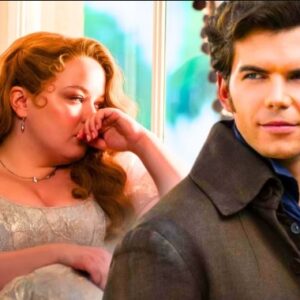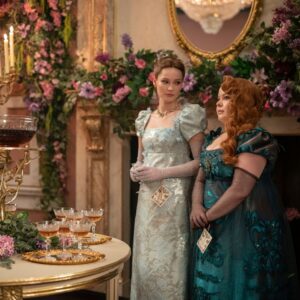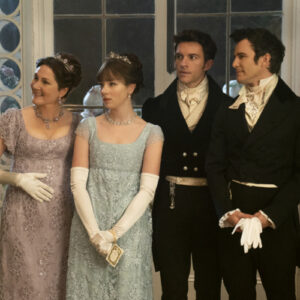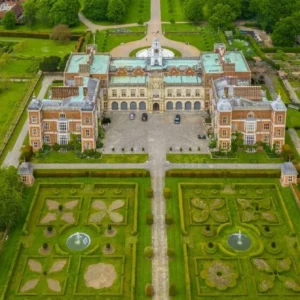FX’s Shōgun has an endearing love triangle unfolding that takes what The Last Samurai attempted to do, but removes all the problematic elements.
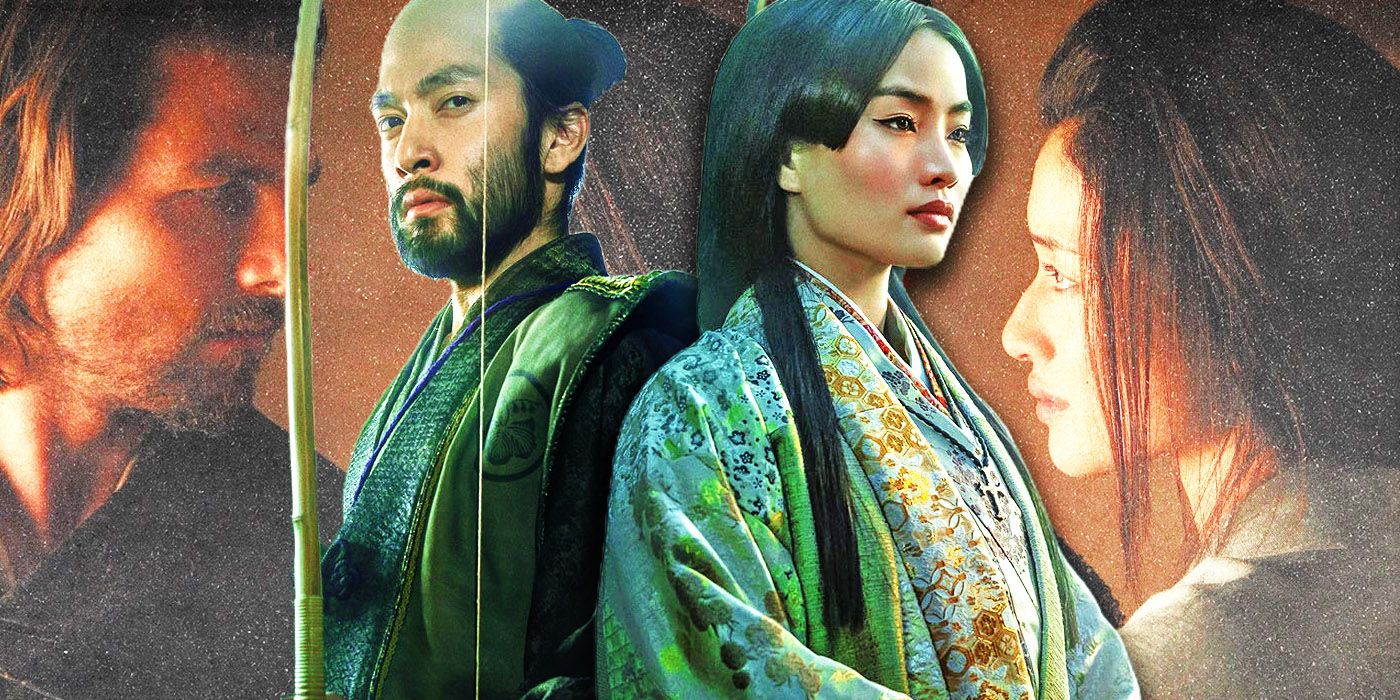
In FX’s Shōgun, Cosmo Jarvis’ take on John Blackthorne is proving every bit as intriguing as trailers promised. In this reworking of history’s William Adams, the Englishman is trapped in Japan. However, he doesn’t mind it because it allows him to work for the British Crown and Her Majesty. His main goal, after all, is to build an alliance against the Portuguese and Spanish royals.
Along the way, Blackthorne makes himself a valuable asset to Hiroyuki Sanada’s Toranaga, the Edo regent, who knows a civil war is brewing. Toranaga quickly partners his translator, Mariko, with Blackthorne, wanting to ensure the sailor can provide knowledge he needs to root out corruption in governance. In the process, Shōgun improves a problematic arc featured in The Last Samurai.
The Last Samurai’s Nathan Algren & Taka, Explained
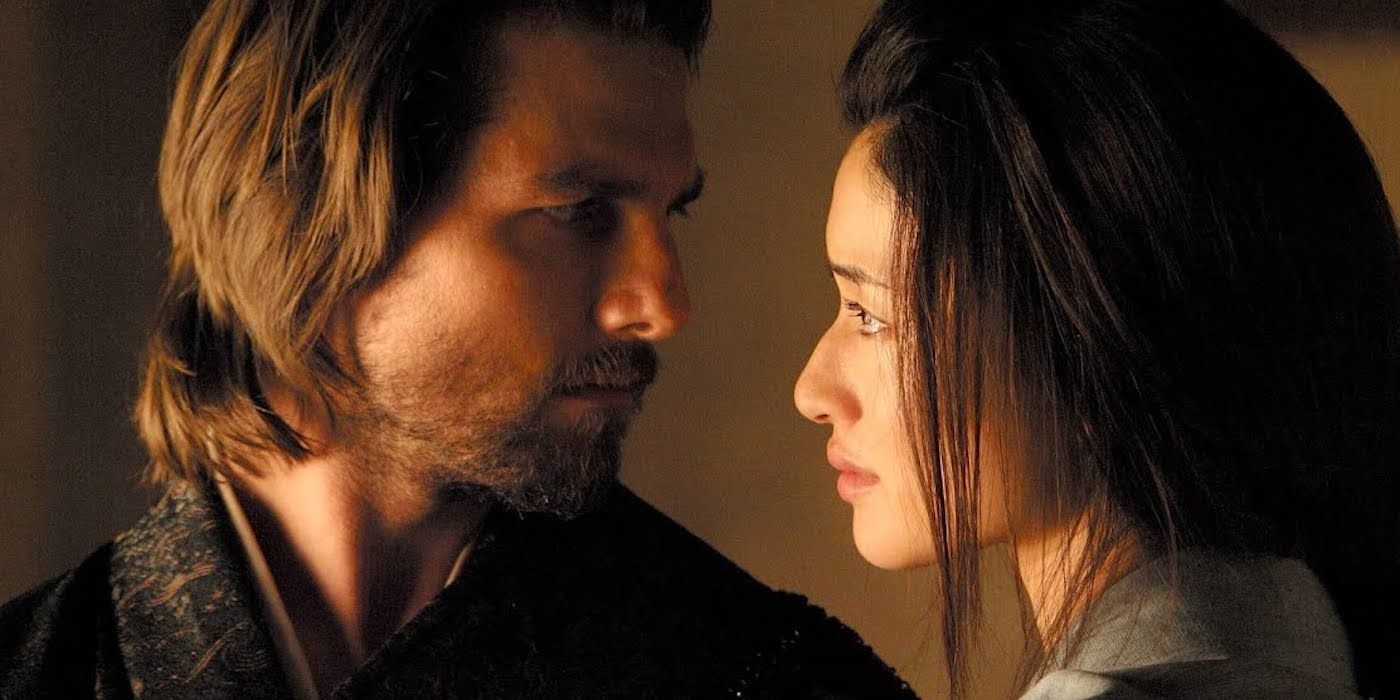
While trying to take out some samurai, Algren was captured by Katsumoto and the American became intrigued by the Samurai way. In time, after they mined him for information on the enemy, he actually joined their cause, understanding it was wrong to be a mercenary. A lot hinged on Algren hating how he was used as a tool to destroy indigenous tribes, with history now repeating itself. He ended up being taken care of by the wife of a samurai he killed named Taka. She was also Katsumoto’s sister, but as the film proceeded, he became part of the family. Shockingly, Algren sparked a romance with Taka while she took care of him under her brother’s orders.
When the war was over, Algren returned to be with Taka, but it added to an already loaded white savior arc. This particular thread lacked authenticity and felt forced. Having him relive his past trauma with Taka wasn’t a bad idea, as it did help him become a better man. But by turning self-realization into romance after he ruined Taka’s life and took a father away from her son, the movie lacked nuance. It was a shock factor move meant to give Cruise — as a leading man in Hollywood — a romance arc. Taka didn’t have any reason to entertain this, so by having her kiss him when bestowing her husband’s armor on him, The Last Samurai did feel like it objectified Taka. Her pining for him further insulted her husband’s legacy.
Shogun Kills Buntaro and Makes Mariko a Widow
Shōgun improves this arc when Toranaga’s crew decides to flee Osaka and return the lord to Edo where he can plot his move to protect the throne he was tasked to keep for the next heir, Yaechiyo. It results in Mariko (played by Anna Sawai) undergoing a similar journey to Taka. Buntaro has been an abusive husband to Mariko all series long, hating that his lord considers her an asset fit to be on the council. Thus, a jealous Buntaro is fiercely loyal, fighting off a slew of attackers in a last stand as the boats leave the Osaka port.
Akin to a move pulled from movies such as The Lord of the Rings, Buntaro remains behind to fend off the enemy. He dies, leaving Mariko distraught. While she couldn’t stand his toxicity, they still had a child together. Part of her loved him for the man he was before. There is a lot more pain here, as Mariko is actively involved in the war. While Taka was a housewife who had just gotten news at home about her husband’s passing, Mariko is in the trenches, ducking arrows and swords alike.
It helps Mariko build a degree of respect and compassion for Buntaro. She does understand the stress, pressure and insecurity he faces. and why he is desperate for approval from Toranaga. Unfortunately, that won’t ever come around again. She watches Buntaro get swarmed, leaving her crying as they depart. Blackthorne is there as well, and as much as it’s clear he has feelings for her, he hurts because he never liked the idea of leaving a man behind.
Shōgun’s Love Triangle Has More Nuance
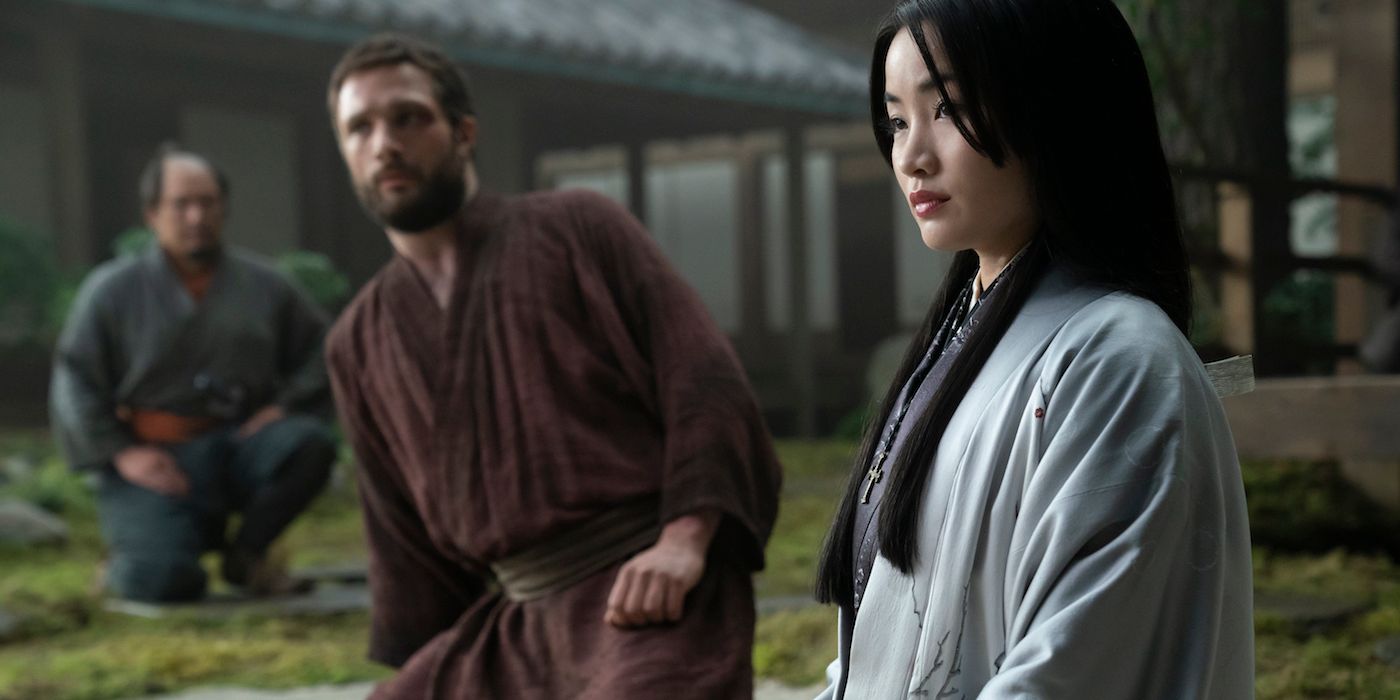
He even shields and fights for Mariko in the port attack by the evil lord, Kiyama. It’s instinctive, but is nothing forced or done with ulterior motives. Mariko appreciates this as well, because she can tell he is a good man. They are compatible, honest and vulnerable with each other, informing why she is developing feelings. He even sees her being berated by Buntaro earlier on, but rather than judge, he relates his own mistakes as a man to comfort her.
This creates a justifiable reason for them to like each other rather than what happened with Algren and Taka — people who just randomly fell for each other because of proximity. The action-packed Shōgun veers in the other direction by opting for a more meaningful bond and a depth that has viewers understanding how hurt souls can heal each other. Mariko represents what Blackthorne left behind and is missing, while he is the kind of caring person she always hoped to marry.
What also has her seeing him in a good light is that he hasn’t mocked her for being a Catholic — something a Protestant like Blackthorne would usually do. Buntaro did this as well, hating how she follows Christianity. Instead, Blackthorne educates her on how the Church has been manipulating Japan and sowing political turmoil, which Mariko appreciates. She can sense all Blackthorne wants is for her to have her eyes opened and freely live a life with people and a faith she can fully trust.
The icing on the cake comes with Blackthorne actually urging the fleet to go back for Buntaro. They refuse to do it, as they would die, too. This shows Mariko his true qualities and endears him to her in a very selfless manner. Ultimately, it is the ideal foundation for friendship to blossom into something more, with their doe-eyed stares and wistful glances creating an organic path for them to have this affinity for each other.
